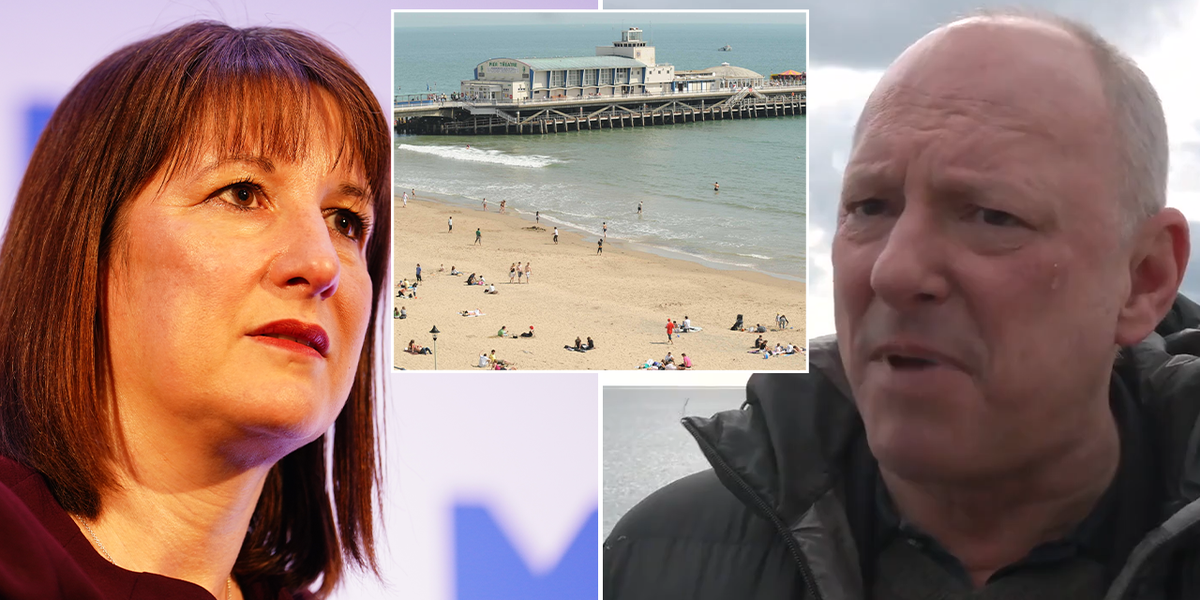Rachel Reeves could be forced to announce further tax rises due to a significant shortfall in the Government’s finances.
Economists warn that the £9.9billion fiscal headroom has been “completely evaporated” by low growth, higher borrowing costs, and unexpectedly high interest rates.
The Chancellor faces tough choices between cutting spending or increasing taxes after receiving the first official economic estimates from the Office for Budget Responsibility on Tuesday.
While there’s pressure for an emergency budget when new forecasts come out on March 26, Reeves is expected to avoid that and propose spending cuts instead.
However, with the need to fix the finances, economists suggest extending the freeze on income tax bands – a stealth tax that pulls more people into higher tax brackets – could be one option for the autumn.
JP Morgan now expects Reeves to face a significant “fiscal hole” in the public finances, with warnings she risks breaking her “iron-clad” fiscal rules.
Reeves is expected to avoid that and propose spending cuts instead.
Getty/GB News
The Bank of England is likely to lower interest rates from 4.75 per cent to 4.5 per cent on Thursday because of worries about the economy not growing.
However, fewer rate cuts are expected this year than earlier predicted because inflation is still high.
Ruth Gregory of Capital Economics calculates that rising Government borrowing costs and lower-than-expected interest rate cuts have already eliminated £6.3bn from the chancellor’s £9.9bn headroom.
The Office for Budget Responsibility may further downgrade its GDP growth forecast for 2024 from 1.1 per cent to closer to 0.7 per cent, according to economists.
Paul Johnson, head of the Institute for Fiscal Studies, said: “Small changes in their forecasts have big political impacts. More likely than not the forecasts will have got worse because of changes in interest rate expectations.”
Allan Monks, chief UK economist at JP Morgan, warned: “The chancellor’s fiscal headroom looks set to evaporate. The cost of government borrowing is significantly higher than it was last year while growth remains anaemic.
“It means Reeves faces having to either restrain spending or increase taxes, both of which are politically challenging.”
Goldman Sachs has also indicated there was a “significant risk that the government’s £9.9bn headroom against its deficit target could be wiped out”.
The OBR has been consistently more optimistic about growth and inflation compared to other forecasters like the Bank of England and IMF.
The Treasury is reportedly concerned about potential growth forecast downgrades but remains confident it can find accounting solutions to avoid immediate tax rises or spending cuts.
One option being considered involves promises to reduce spending in the fiscal year 2029-30, which would not require immediate changes to departmental budgets.
The Chancellor has recently attempted to strike a more positive tone, announcing initiatives on Heathrow, planning reforms, deregulation and benefits to drive economic growth.
However, many of these measures will take years to yield results, and the OBR will not factor in plans to cut the benefits bill or planning changes due to lack of evidence of their impact.
In a bid to prevent further market disruption, the Bank of England has opened applications for a new emergency lending tool which is designed to protect pension funds during times of severe market stress.
The Contingent NBFI Repo Facility (CNRF) will provide crucial support to non-banking financial institutions by offering emergency loans during periods of market turbulence.
The Bank will lend directly to insurers, pension funds, and certain investment strategies, with UK Government bonds serving as collateral for the loans.
Vicky Saporta, Bank of England, Executive Director for Markets, said: “Opening for CNRF applications marks a significant step forward in our efforts to deal with future episodes of gilt market dysfunction.
“Having the ability to lend to eligible non-bank financial institutions in times of severe market stress means we are better equipped to protect financial stability for the benefit of households and businesses throughout the UK.”










